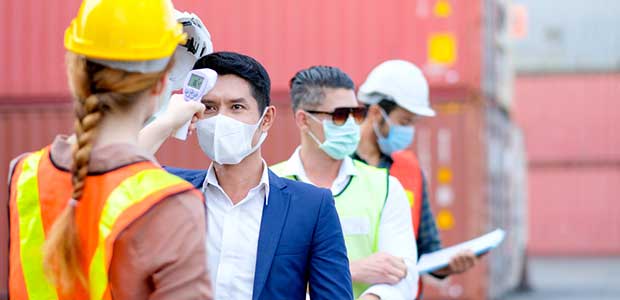
U.S. Department of Labor Will Step Up Workplace Inspections for COVID-19
The U.S. Department of Labor’s OSHA announced it will expand inspections to reduce job-size hazards related to coronavirus across the country, but many are saying the policy falls short of demands by worker advocates.
Two weeks ago, OSHA revised its policy, saying it will expand inspections beyond those in healthcare facilities, which the agency said last month it was prioritizing to conserve resources.
OSHA’s announcement stated that the agency would:
- Increase in-person inspections at all types of workplaces. This is in response to the fact that many non-essential businesses have begun to reopen in areas of lower community spread.
- Revise its previous enforcement policy for recording cases of coronavirus. Under OSHA’s recordkeeping requirements, coronavirus is a recordable illness, and employers are responsible for recording cases of the coronavirus, if the case:
- is confirmed as a coronavirus illness;
- is work-related as defined by 29 CFR 1904.5; and
- involves one or more of the general recording criteria in 29 CFR 1904.7
Following the listed requirements for recordkeeping, OSHA added, “given the nature of the disease and community spread, however, in many instances it remains difficult to determine whether a coronavirus illness is work-related, especially when an employee has experienced potential exposure both in and out of the workplace.”
OSHA can fine employers for violating workplace safety rules, but only after it conducts inspections and investigations.
In a notice on April 10, OSHA said it would consider “good faith” efforts of employers to protect employees before issuing citations. This meant it would “exercise enforcement discretion” because of the difficulty of proving how or where a worker contracted the SARS-CoV-2 virus.
While the revisions expand OSHA’s power in holding employer accountable for coronavirus safety, many say the revisions stop short of one of the key demands of worker unions: that OSHA adopt an emergency temporary standard for workplace safety regarding COVID-19.
In fact, the American Federation of Labor and Congress of Industrial Organizations (AFL-CIO) (the largest federation of labor unions) has been urging the agency to adopt an infectious disease standard since 2009, according to one article.
A COVID-19 standard would impose requirements on businesses and speed up the enforcement process for companies that don’t comply, said David Muraskin of advocacy group Public Justice.
He says that the general clause for employers to protect their employees in a safe workplace is not enough, since its requirements are softened by language like “where possible” and “where feasible.”
“That’s why people want actual standards,” said Muraskin. “It has a real effect. These inspections are likely a way for the administration to claim it is doing something without actually doing anything.”
To date, OSHA has not issued any citations for COVID-19 related inspections. “But out of more than 3,800 Covid-19 related complaints that OSHA has received—many concerning a lack of personal protective equipment such as face masks, gloves and gowns—the agency had opened only 281 coronavirus-related inspections as of May 13,” according to a Labor Department spokesperson.